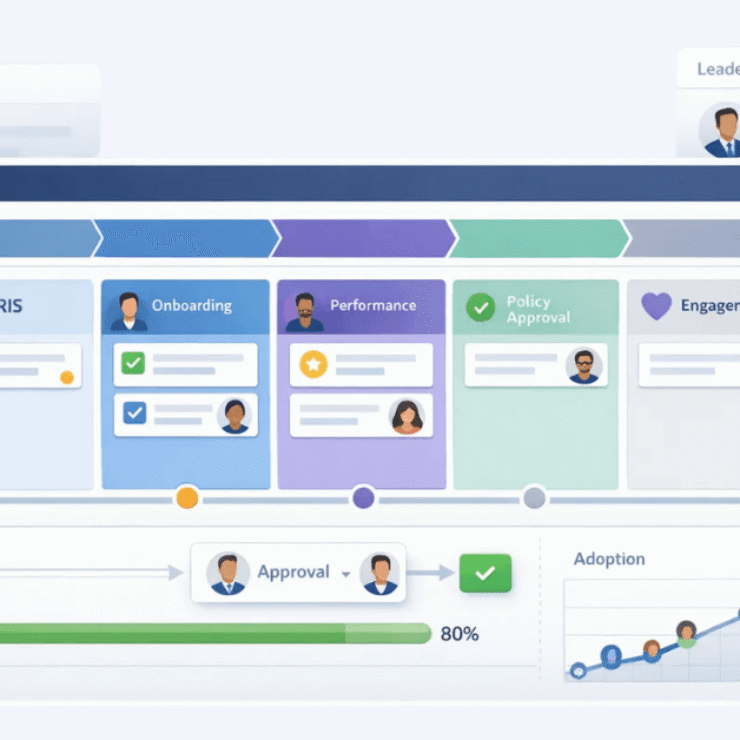Introduction
Undoubtedly, successful and efficient project management is a crucial factor for the success of every business. Project management is not just about ensuring the smooth process of creating the projects, but also ensuring that all things are working as planned. From keeping every project under the budget to completing it within the timeline to ensuring; quality, there are multiple things to consider here.
Do you know poor project management is a major reason behind around 12 percent wastage of business resources? So, how to ensure project management success? While this can be a challenging task for a new manager, but also some effective tips can lead to remarkable results.
A Project Manager’s Role In Successful Project Management
Project management entails managing projects from the beginning to the successful completion. This generally includes strategizing, guiding, staffing, organizing, and controlling various resources to attain the desired goals.
Project managers create goals for every project and leverage their expertise and skills to accomplish them effectively. Through risk recognition, resource allocation, and teamwork, they ensure that every project is completed on time, with the best quality, and within the set budget.
Some best project management skills used by project managers to attain their goals include:
- Team management and motivation
- Leadership
- Adaptability
- Effective communication
- Time management and organization
- Risk management and problem-solving
The ultimate success of any project is dependent on a project manager’s understanding of his duties. They serve as the connecting pins that ensure the team remains motivated and informed. That’s why more than 97 percent of businesses believe that their business’s success and performance depend on the project manager’s role.
Top Responsibilities of a Project Manager
Every project manager juggles different core responsibilities to lead projects through changes and hurdles. As a project manager, it will be your responsibility to keep an eye on the overall planning, execution as well as success of every project.
Besides, a project manager’s responsibilities encompass other important tasks, like understanding project workloads, monitoring progress, creating effective project plans, and more. Furthermore, they also ensure better clarity regarding the status of the project among the stakeholders.
This generally involves organizing meetings to foster collaboration and communication. Some major responsibilities of a project manager in the process of successful project management are:
- Effective project planning
- Ensuring team coordination
- Budget oversight
- Risk management
- Regular client communication
- Ensuring quality standards
A good project manager always delivers a project that goes beyond the client’s expectations, is within the budget, and is delivered on time. Many professionals develop these capabilities through project management courses that focus on real-world project execution. Apart from understanding the duties and responsibilities, there are other things that you will have to consider for successful project management.
Wondering what are those things? Read the below section for the 10 most essential tips for effective project management.
10 Tips for Project Managers to Achieve Success in Project Management
- Understand the Project Inside Out To attain success in project management, the first and most important thing to do is lay a robust foundation. Identify stakeholders, and carefully understand their expectations and interests related to the project. Once done, you need to come up with a perfect project plan. Ensure that you have picked out the job responsibilities and roles of every member related to the plan.Furthermore, clearly define the objectives and goals for better understanding and clarity. While creating a plan, keep in mind that the priorities of projects may change during the process. So, don’t forget to revisit, refine, and reshape your plan constantly to make sure everything is adjusted accordingly.
- Set Realistic and Clear Goals Attaining project goals is a crucial part of every project execution. Before starting a project, you should ensure that your project has measurable and clear goals. Setting evident objectives from the beginning prevents confusion. Planting goals is about creating a success blueprint where there is no place for ambiguity. It will help you and your team to optimize efforts and resources to ensure everyone is working towards the same goal. Remember that projects without clear objectives are like navigating without a compass. Furthermore, the early creation of detailed planning also ensures effective alignment with stakeholders and avoids scope creep- an enemy of project budgets and timelines. It will be much better if the team is involved while setting objectives.
- Foster Effective Communication in The Team Every project manager must have effective communication skills and also the ability to interpret their vision for projects. Weak communication between a project manager and team can always lead to a failed project. So, always converse with your team, clients, and stakeholders. Engage with them at every stage of the project. New changes to the project should be discussed every time to avoid any surprise attacks. Take the help of various communication apps or collaboration tools to make communication and project status reporting an ongoing practice. The more you communicate with parties involved in the project, the more successful the project will be.
- Allocate Resources and Budget Wisely When managing projects, it is also important to create an inventory and analyze available resources. The resources may include equipment, manpower, and money. Then you can estimate the usage of resources. Once done, work towards the proper allocation of available resources. While doing this, it is advisable to maintain a maximum level of transparency among stakeholders and team members. This will boost accountability and trust. There are many project management programs available to ensure budget and resources are perfectly aligned. Let’s understand this with a simple example. If you are handling a software development project, then here you need to allocate testers, designers, and developers. Apart from this, estimate the training expenses and the costs of equipment and necessary licenses. Track and measure how all the resources are being used continuously to ensure the productivity of the team.
- Take the Help of project monitoring Tools to Track Progress As per a report, around 77 percent of professional teams take the help of different project management programs to execute a project successfully. Project management and monitoring tools are designed to help in tracking progress and managing available resources efficiently. With these tools, you can easily streamline project operations while automating multiple repetitive tasks. Project Monitoring tools allow project managers to analyze project progress in-depth. However, selection of such tools should be made carefully as not all programs are suitable for every project and only the best tool can greatly boost your team’s efficiency. For instance, for projects that require real-time communication, complex resource allocation, and effective team management, you can go for Karya Keeper as it features agile methodologies.The effectiveness of a tool doesn’t just depend on the features but also depends on the culture followed by an organization, the working style of the team, and how well the software fits into the project’s requirements.
- Create a Flexible Team In today’s ever-changing and fast-paced work environment, businesses are now looking for innovative approaches to complete their projects on time. One such approach is the creation of a flexible team. A resilient team, characterized by its adaptable and dynamic nature, can offer many advantages that will help in successful project management. Create a flex team for your project that is completely different from a traditional team and can easily adjust their responsibilities, and role considering the changing project requirements. With such a team, you can increase the chances of attaining the desired results faster. Apart from creating a versatile team, also be flexible with the project methodologies. Don’t just focus on one methodology, working with a mindset to combine multiple methodologies will be required to gain fruitful project results.
- Consider and Manage Potential Risks Risk management plays an important role in successful project management. Risks are the possible threats that can arise at any time and affect the progress of the project. To keep your project on track, identify every possible risk as soon as possible and assess their impact. Come up with the right strategies to avoid those risks. Risk management is not just a one-time process. It is a continuous process and should be a part of every project management stage. Years of Experience and expertise help the manager to foresee when a risk is imminent and the right time to take action. For instance, for a product launch, some possible risks can be technical glitches, delay of delivery from suppliers, unpredicted market situations, etc. Based on the assessed impact, come up with strategies like rigorous testing, backup suppliers, detailed market analysis, and more. Well, you can’t eliminate all the risks but with a perfect risk management strategy, you will be able to resolve those risks quickly.
- Keep The Team Motivated Just creating a dynamic team is not enough. A project manager should always work on keeping the team motivated. When the team is highly motivated, it will be more productive, focused, and creative. This, in turn, will lead to better results and a successful project management process. Well, maintaining motivation among the team members can be quite challenging, especially when working on long-term projects or demanding work. However, there are many strategies to help with this. For example, set specific and achievable goals, reward the team for victories, and communicate with the team constantly. Besides, provide them with the tools and resources required for the successful execution of the project.
- Maintain Relevant Documentation Project documents are written processes that play a crucial role in setting up the project in an easy-to-understand and efficient manner. These documents offer different valuable services, like setting required boundaries, offering guidance to the team, etc. Maintaining relevant project documentation can create a positive impact on the project execution quality. Some of the most important project management documents to be maintained are the project charter, communication plan, project budget, task breakdown structure, etc. Documenting also ensures the right evidence for referencing any project element.
- Engage With Clients Clients’ engagement is a fundamental element of every project and they can be a major factor for successful outcomes. Involve the clients from the very beginning to ensure the requirements of every participant in a project are met. Communication with the stakeholders should be made before, during as well as after the completion of the project. Constant association with clients creates a sense of contribution and responsibility among them. Use project management tool to generate timesheets and important data with a few simple clicks to share with the clients. Besides, these tools can also work as a centralized communications hub for all, including stakeholders.
Final Words
Project management does not just involve the use of some pre-determined procedures to be followed. It is important to understand that it is a comprehensive method that combines adaptability, team-building, clear communication, and risk management. Undoubtedly, it is a multifaceted and complex discipline but it is not impossible to attain.
The mentioned ten useful tips will help you develop the required knowledge to lead your projects through complexities, and possible risks to witness the desired results. These tips are for both seasoned professionals and aspiring project managers.
Additionally, keeping yourself updated with the latest tools, methodologies, and trends in project management will also help you easily adapt to the industry’s changing needs. Keep learning to enhance your project management skills.
FAQs
What Do You Mean by Project Management Methodologies?
Methodologies in project management function like a blueprint and help project managers navigate through a project’s life cycle. One can opt for Lean, Waterfall, Scrum, or Agile project management methodologies based on the type and requirements of the project.
Why Is a Project Manager Crucial for Every Project?
Project managers bridge the gap between the plan and execution of a project. The core role of every project manager is to ensure the projects are completed within the deadline while staying within the budget and adhering to required quality standards. An experienced project manager, using his/her skills can eliminate scope creep easily.
What Are the Criteria for Successful Project Management?
While there are many criteria for project management success, some of the most important criteria include scope, budget, time, team management, risk management, and resource utilization.
Is It Possible to Measure the Success of a Project?
Yes, it is possible and you can consider different measurement factors. However, some of the best ways to do this are by gathering customer feedback, ensuring the project’s budget compliance, reviewing your team’s satisfaction, and evaluating the project quality.
Is It Possible to Automate Project Management?
It is possible to automate repetitive, simple processes with the use of project management programs. But, It is not feasible to replace all human actions with tools, automation can boost project efficiency and help your team focus more on the project’s successful completion.



